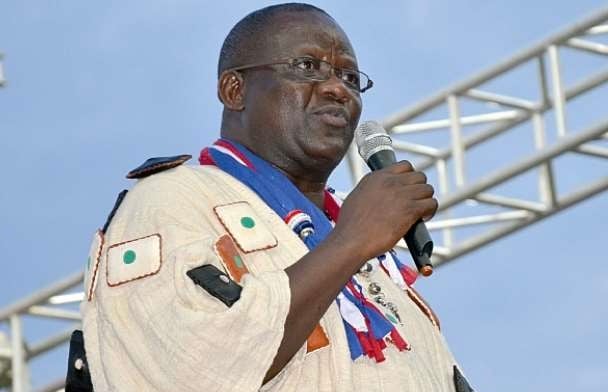Paul Afoko, the erstwhile National Chairman of the New Patriotic Party (NPP), has recounted the profound emotional turmoil he experienced following his suspension from the party. The suspension, which he viewed as unjust, triggered a deep sense of betrayal and resentment that permeated his life for an extended period. He described the ordeal as so painful that he could not bear to watch NPP-related programs on television, instinctively switching channels whenever the party’s image or members appeared on screen. This visceral reaction stemmed from a profound distrust of the party’s leadership and members, whom he perceived as dishonest and disloyal. The suspension, coupled with the subsequent court ruling which he deemed “bizarre,” left him disillusioned with party politics, prompting him to consider withdrawing entirely from active participation. He felt that the experience exposed the thankless nature of political engagement, particularly within the NPP.
Afoko’s anger and bitterness were further fueled by the barrage of lies and accusations leveled against him from within the party. He described moments of incandescent rage, a consuming emotion that gripped him as he struggled to comprehend the betrayal and injustice he perceived. This anger, he admitted, became a destructive force in his life, consuming his energy and peace of mind. He felt isolated and unjustly maligned, his contributions to the party seemingly disregarded and his character unfairly tarnished. The internal conflict and emotional distress he experienced underscored the deep personal wounds inflicted by the suspension and the subsequent actions of his former party colleagues.
The turning point in Afoko’s journey towards healing came through the wise counsel of former President John Agyekum Kufuor. Recognizing the destructive nature of Afoko’s unresolved anger, President Kufuor advised him to let go of the bitterness and resentment that were consuming him. This timely intervention provided Afoko with the perspective he needed to begin the process of healing and moving forward. He gradually began to release the anger and resentment, recognizing the detrimental impact it was having on his own well-being. This process of emotional liberation allowed him to begin rebuilding his life and finding peace after a tumultuous period.
By 2017, Afoko had made significant progress in overcoming his bitterness. He no longer experienced the visceral reaction of changing channels when NPP members appeared on television. This marked a significant shift in his emotional state, indicating a release from the deep-seated resentment that had previously consumed him. It symbolized a newfound ability to objectively view the party and its members without being triggered by the past. This ability to detach emotionally represented a crucial step in his healing process.
The suspension and its aftermath served as a profound learning experience for Afoko. It exposed him to the complexities and often brutal realities of party politics. While he acknowledges the pain and disillusionment he experienced, he also recognizes the personal growth that emerged from the ordeal. The experience forced him to confront his own vulnerabilities and develop resilience in the face of adversity. It also underscored the importance of forgiveness and letting go of negative emotions for the sake of one’s own well-being.
Afoko’s narrative serves as a poignant reminder of the human cost of political conflict. It highlights the emotional toll that internal power struggles and accusations can take on individuals, even those in positions of leadership. His journey towards healing and reconciliation underscores the importance of forgiveness, both for oneself and for those who have caused harm. It also emphasizes the crucial role of mentorship and wise counsel in navigating difficult times and finding peace amidst turmoil. The experience, though undoubtedly painful, ultimately contributed to Afoko’s personal growth and provided him with valuable insights into the intricacies of human relationships and the dynamics of power within political organizations.


